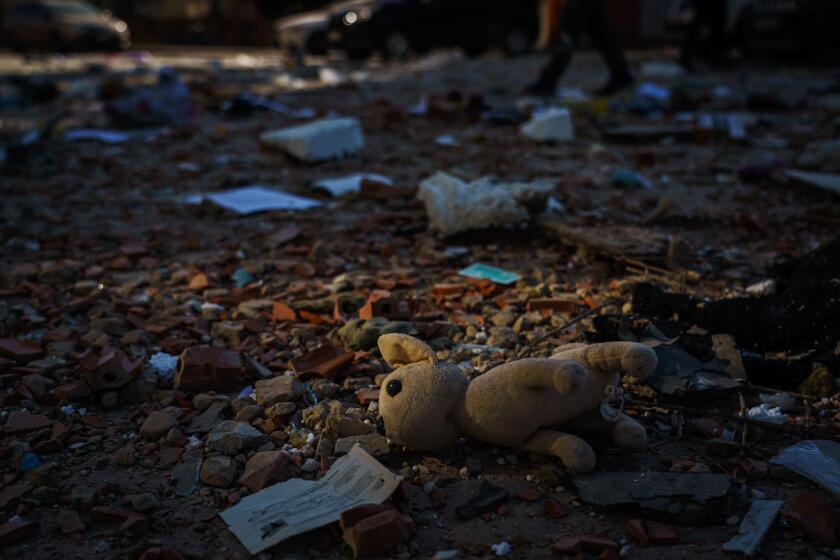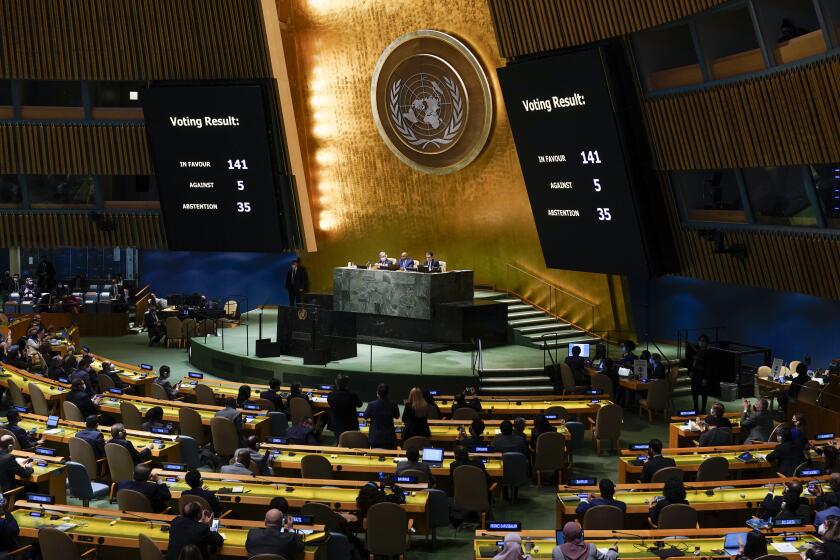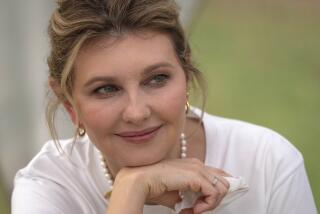Op-Ed: Putin’s diaspora will echo 1939’s, but going in the opposite direction
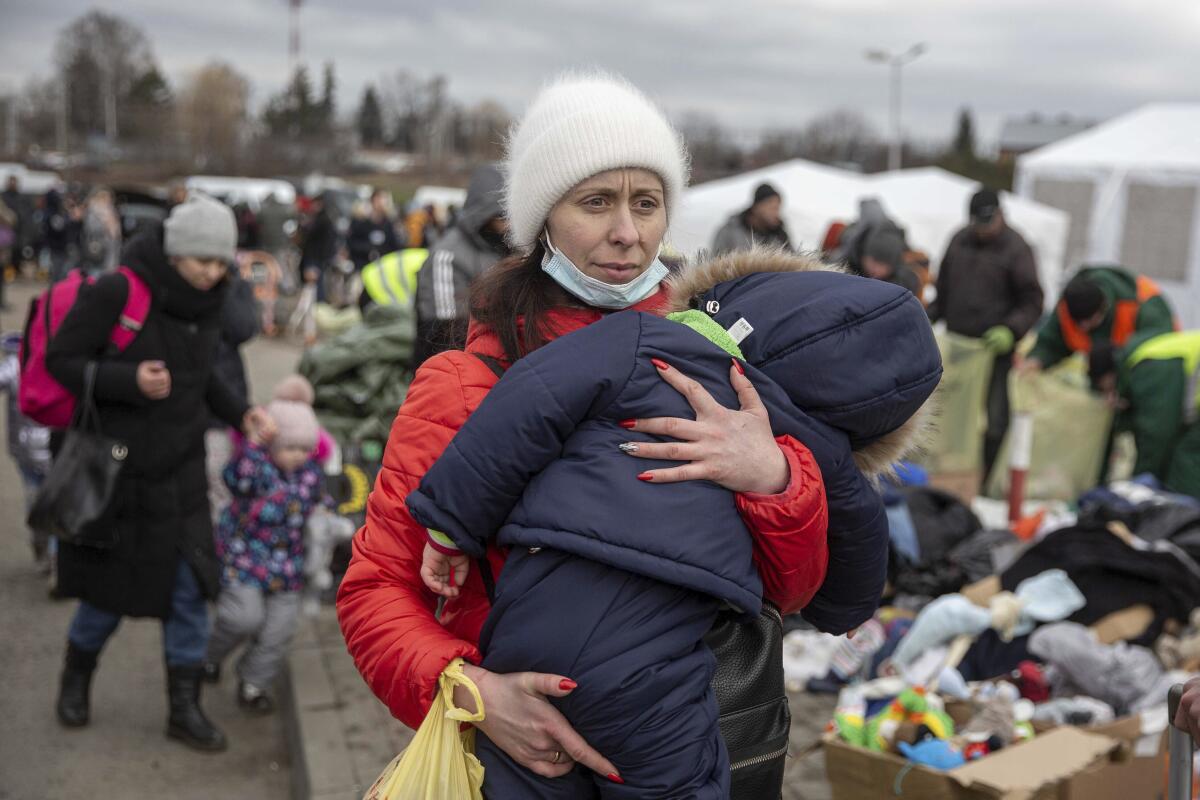
- Share via
My wife and I share a past that spans continents and tracks back to the Polish-Ukrainian border. Eighty-two years ago, during a frigid winter, both sets of our grandparents made the same escape from eastern Poland, ahead of the Nazis’ occupation. They crossed the River Bug, and found their way to what is today Lviv, Ukraine.
For more than a decade we’ve wanted to visit our ancestral homeland. The plan at last was set — and we hope it still is — in May, we are to arrive in Zamosc, Poland, birthplace of three of our grandparents, stop by the nearby village where the fourth came from, and then drive two hours east to Lviv.
But just when you think you are studying history, you find that you are living it. Except now, the refugees are fleeing in the opposite direction.
Since the Russian war against Ukraine began, more than 1 million people have fled their homes. Train cars are packed. Cars line the highways out of Kyiv headed to Lviv and, for those who can exit, onward to Poland and other countries. It is projected to be the biggest displacement of Europeans since our grandparents fled their homes for the East in 1939, at the onset of World War II.
That was the coldest winter of my grandmother’s life. She had defied her father’s demands that she remain with her month-old baby in Zamosc: You will lose the kind, he shouted at her in Yiddish — you will lose the child.
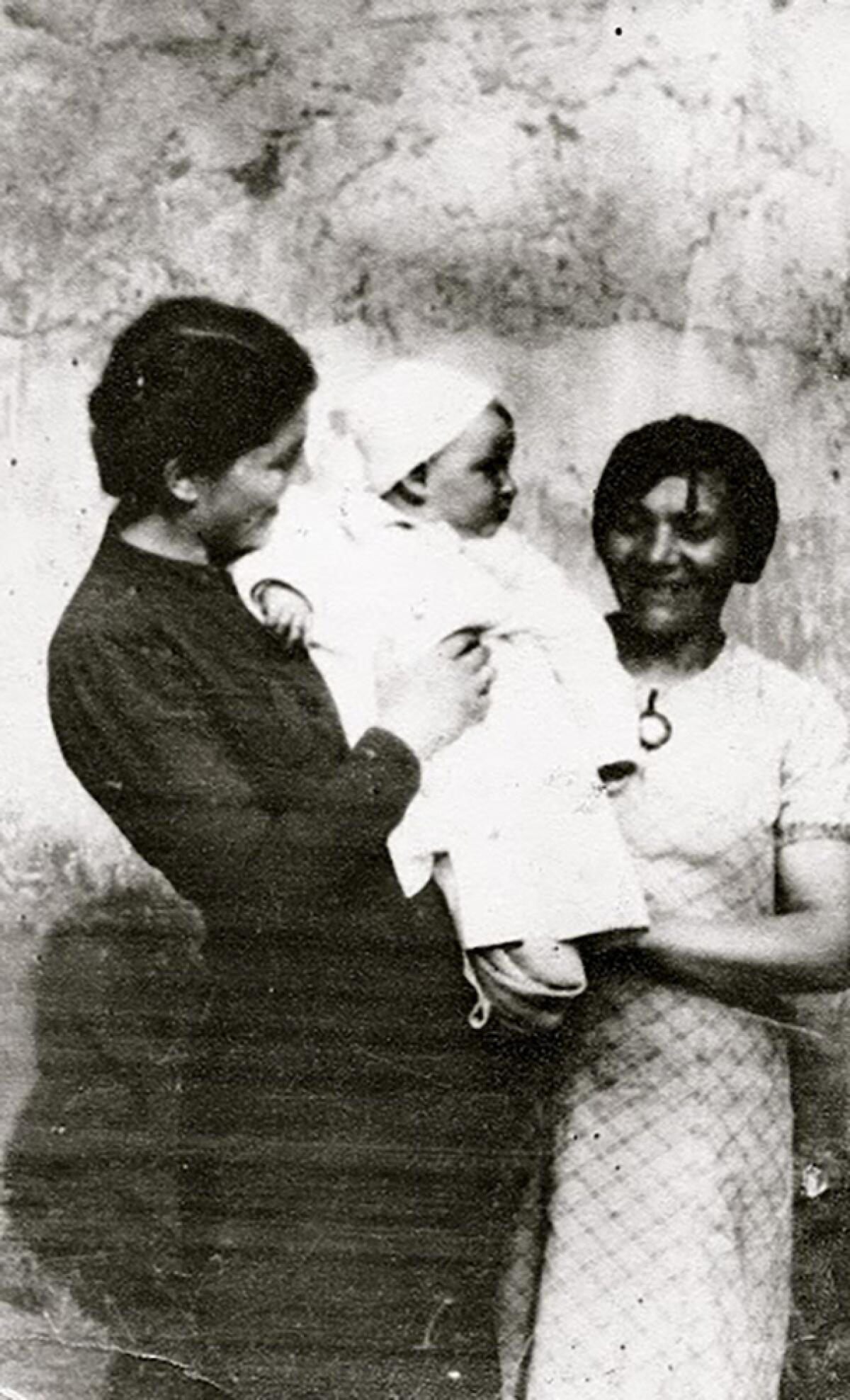
Instead, she crowded onto a Russian truck to meet my grandfather, who had gone ahead of her. They rented a small, unheated apartment in Soviet Lviv with other refugees, selling their belongings on the black market to survive. One last letter arrived with news of their parents: They had been relocated by the Nazis to Zamosc’s ghetto.
“I prayed, if I can live to May, I’ll be able to go outside with my child,” my grandmother recalled in an oral history project for the Jewish Community Relations Council of Greater Washington. “Just the opposite, when I started to go with the baby outside, he caught a very bad pneumonia.” In May 1940, my uncle perished at 8 months old. My grandfather said that losing their baby boy turned my grandmother’s hair white.
Ukrainians have been forced to flee their homes or fight back as Russian forces attack their cities. These photos and maps tell the story.
Nearby in Lviv, my wife Talia Inlender’s grandmother, then still a teenager, had also sought refuge. That winter, the memory book she had started in Poland, in which her friends shared rhymes and pleasant memories in a mix of Polish and Yiddish, took a darker turn.
Lviv, January 15, 1940 — Remember that the patient will always get everything, so try to be patient.
Lviv, January 18, 1940 — To Kind and Beautiful Pepcia: Almost everything is simple. Love God and Homeland. And don’t forget me.
That summer, our grandparents were deported in cattle cars to Siberia, victims of one of Stalin’s massive and underreported purges.
Their forced labor in the gulag likely saved them from the gas chambers that extinguished their parents. Our grandparents — we are convinced they must have crossed paths — would be among 5,000 Jews (out of about 12,000 before the war) from Zamosc to survive. Most, like them, had endured Soviet imprisonment.
Once the Russians joined the Allies against the Germans in 1941, our grandparents were freed to travel within the Soviet empire. They landed in Uzbekistan. My grandmother said it was because they dreamed of making it to Palestine; my Uncle Moishe because it was warmer than Siberia. I have read that the relocation was simply part of Stalin’s plan.
After the war, rather than going back to Zamosc, where Poles in nearby towns were murdering returning Jews, they lived for years in Europe’s displaced-persons camps. My grandparents left for New York a decade after their frigid winter in Lviv; my wife’s grandparents arrived in Haifa nine years after Lviv.
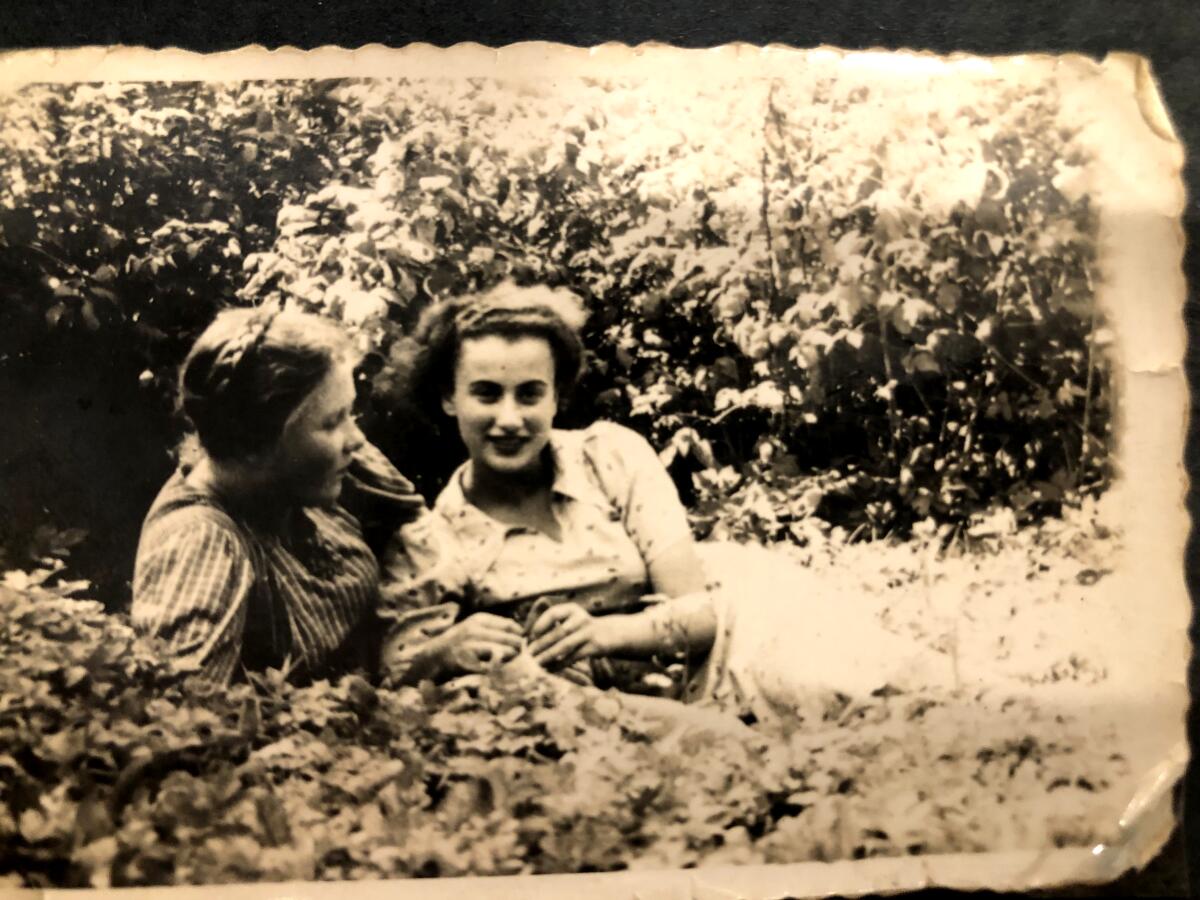
A month ago, as I dove into planning our trip to Poland and Ukraine, I contacted Daniel Sabacinski, who runs the local synagogue memorial site in Zamosc. (He isn’t Jewish; he believes there is just one Jew left in Zamosc.) How easy would it be to travel on to Lviv? I asked him. “No problem,” he told me then, though Russian troops were massing on Ukraine’s borders.
The day of the Russian invasion I called him again. He was in shock. “It’s like 1939,” he said. “We haven’t had war in this part of Europe since World War II. War was just history.”
War may never be just history in our families. The gassing deaths of their parents and half the Jews of Zamosc never faded for my grandparents; they lived by the mantra “Never forgive, never forget.” For our generation, that was amended to simply “Never forget.”
A similar generational shift from battle to history occurred after the Cold War. My father served in the Reagan administration at the United Nations and believed in fighting at all costs to defeat the “evil empire.” For my generation, coming of age with the fall of the Berlin Wall, the focus has been on reconciliation, finding ways to build a new global society together.
Europeans have gone further down the path toward unity on security in one week than they did during the entire previous decade.
In a post-Cold War soft-power experiment, I was one of 10 Americans and 10 Russians awarded a German Chancellor Scholarship by the Alexander von Humboldt Foundation. (The program has since expanded to include Chinese, Brazilians, Indians and South Africans.) For two months, we studied German in the West German capital of Bonn and drank a lot of vodka at raucous late-night parties before we scattered across the country to pursue research projects for the rest of the year. Bonding was part of the plan. It worked; some of the Russians are still among my closest friends.
Hours after the Ukraine invasion, I sent a WhatsApp message to them, checking in. One wrote back: “How is it possible? We keep asking and have no words to explain.”
I am also stunned, but perhaps a little less so.
“Everything was so fast,” my grandmother recalled in her 80s. “It was such a shock.” At the time, the idea that the Nazis would exterminate Jews seemed “so silly or unbelievable.” Later, she thought, how could I not have known?
My wife and I were raised to believe that we could move to a new era. But we were also raised to know intimately the unpredictable depravity deep in human nature that can change our trajectories in devastating and, as we would discover generations later, unexpected ways.
We hoped this was history; we fear it is not.
Daniela Gerson is a journalism professor at Cal State Northridge. She and Talia live in Echo Park with their 4-year-old twins.
More to Read
A cure for the common opinion
Get thought-provoking perspectives with our weekly newsletter.
You may occasionally receive promotional content from the Los Angeles Times.
